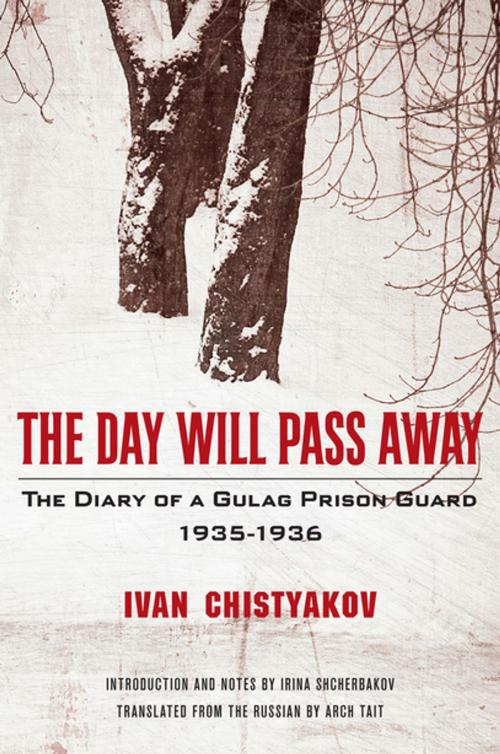The Day Will Pass Away: The Diary of a Gulag Prison Guard: 1935-1936
Nonfiction, History, Asian, Russia, Biography & Memoir| Author: | Ivan Chistyakov | ISBN: | 9781681774978 |
| Publisher: | Pegasus Books | Publication: | August 8, 2017 |
| Imprint: | Pegasus Books | Language: | English |
| Author: | Ivan Chistyakov |
| ISBN: | 9781681774978 |
| Publisher: | Pegasus Books |
| Publication: | August 8, 2017 |
| Imprint: | Pegasus Books |
| Language: | English |
A rare first-person testimony of the hardships of a Soviet labor camp—long suppressed—that will become a cornerstone of understanding the Soviet Union.
Originally written in a couple of humble exercise books, which were anonymously donated to the Memorial Human Rights Centre in Moscow, this remarkable diary is one of the few first-person accounts to survive the sprawling Soviet prison system.
At the back of these exercise books there is a blurred snapshot and a note, "Chistyakov, Ivan Petrovich, repressed in 1937-38. Killed at the front in Tula Province in 1941." This is all that remains of Ivan Chistyakov, a senior guard at the Baikal Amur Corrective Labour Camp.
Who was this lost man? How did he end up in the gulag? Though a guard, he is a type of prisoner, too. We learn that he is a cultured and urbane ex-city dweller with a secret nostalgia for pre-Revolutionary Russia. In this diary, Chistyakov does not just record his life in the camp, he narrates it. He is a sharp-eyed witness and a sympathetic, humane, and broken man.
From stumblingly poetic musings on the bitter landscape of the taiga to matter-of-fact grumbles about the inefficiency of his stove, from accounts of the brutal conditions of the camp to reflections on the cruelty of loneliness, this diary is an astonishing record—a visceral and immediate description of a place and time whose repercussions still affect the shape of modern Russia, and modern Europe.
A rare first-person testimony of the hardships of a Soviet labor camp—long suppressed—that will become a cornerstone of understanding the Soviet Union.
Originally written in a couple of humble exercise books, which were anonymously donated to the Memorial Human Rights Centre in Moscow, this remarkable diary is one of the few first-person accounts to survive the sprawling Soviet prison system.
At the back of these exercise books there is a blurred snapshot and a note, "Chistyakov, Ivan Petrovich, repressed in 1937-38. Killed at the front in Tula Province in 1941." This is all that remains of Ivan Chistyakov, a senior guard at the Baikal Amur Corrective Labour Camp.
Who was this lost man? How did he end up in the gulag? Though a guard, he is a type of prisoner, too. We learn that he is a cultured and urbane ex-city dweller with a secret nostalgia for pre-Revolutionary Russia. In this diary, Chistyakov does not just record his life in the camp, he narrates it. He is a sharp-eyed witness and a sympathetic, humane, and broken man.
From stumblingly poetic musings on the bitter landscape of the taiga to matter-of-fact grumbles about the inefficiency of his stove, from accounts of the brutal conditions of the camp to reflections on the cruelty of loneliness, this diary is an astonishing record—a visceral and immediate description of a place and time whose repercussions still affect the shape of modern Russia, and modern Europe.















